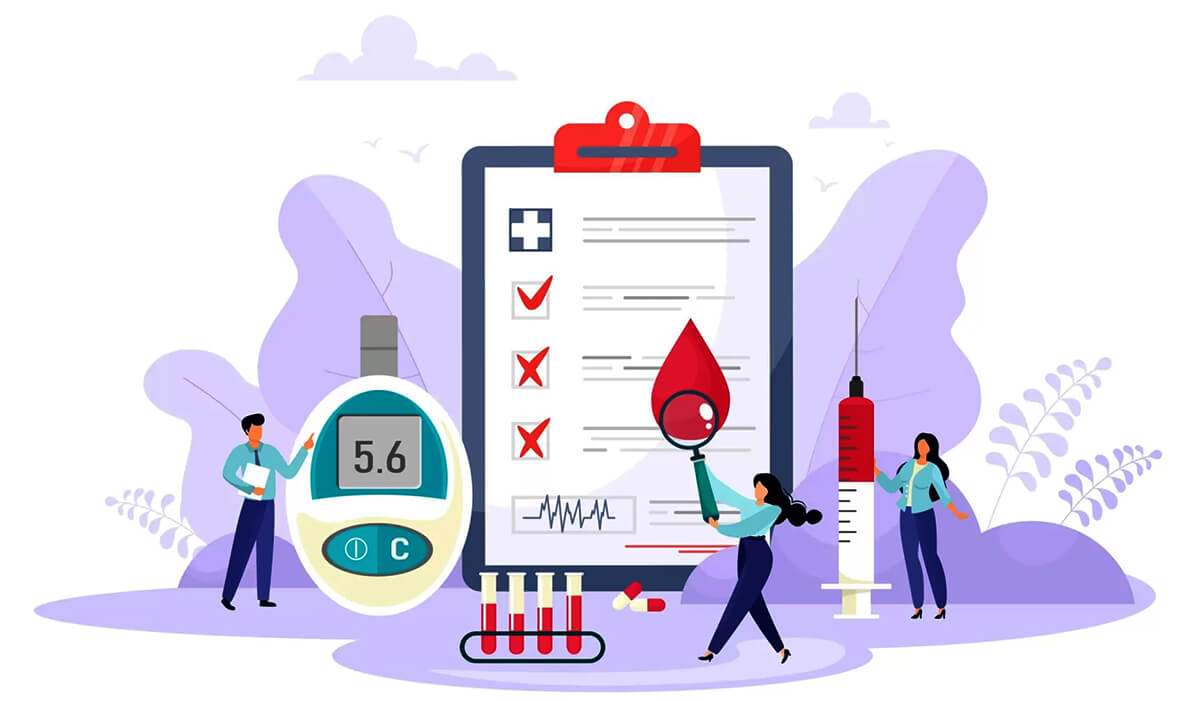
Caring for Someone with Diabetes the RIGHT Way 🙌
Are you or someone you know a caregiver for a person with diabetes?
If so, read further to find some tips on:
- Coping with diabetes
- How to not be the diabetes police
- How to find support as a caregiver
Being a Caregiver for a Person with Diabetes
Being a caregiver for a person with diabetes can be a full-time job. Constantly making sure blood sugar levels are not too high or low, making sure you have everything you need in case of either scenario and more. All of this can feel very stressful.
 One way to reduce this stress is to educate those around you about diabetes including teachers, coworkers, and friends. This way if the person with diabetes is not with you, you know they are in knowledgable hands and it can give you an opportunity to relax.
One way to reduce this stress is to educate those around you about diabetes including teachers, coworkers, and friends. This way if the person with diabetes is not with you, you know they are in knowledgable hands and it can give you an opportunity to relax.One role of being a caregiver is helping your loved one cope with diabetes. Speaking about diabetes in a positive way is essential, especially from a young age. Debra Holwegner spoke to us and gave us some very insightful tips on knowing when it is time to talk to a loved one on this subject. It is important to give them an opportunity to talk and share their feelings. Try to recognize the signs that they may need to talk, and let them know they have a support system when and if they ever need it.
Avoiding the Diabetes Police
Being the primary caregiver for someone with diabetes can be very stressful for both parties involved. Whether you are caring for your child, spouse, or other loved ones it can be difficult to relax and not be seen as the ‘diabetes police’. The term diabetes police refers to micro-managing someone with diabetes; this can be by giving unwanted advice or consistently talking about their diabetes. Here are a few tips to reduce the chances of being seen as the diabetes police:
- Make time to speak one on one about diabetes.
- Remember that blood sugar levels can be fixed.
- Imperfect blood sugar levels are not a reason for punishment.
- Remember there is no such thing as perfect management of diabetes – it can be a rollercoaster.
Some children might not want to disclose their blood sugar levels to their parents if they have been high out of fear of being punished. Make sure to combat this by reassuring them that you are there for support, and not to reprimand. One day with too much sugar and high levels can be fixed.

Getting Support as a Caregiver
Many caregivers find support from those in similar situations. There are quite a few different diabetes camps throughout the Midwest. Camp Hertko Hollow and Cosmo Diabetes Camp are two of the camps offered in Iowa. These camps have diabetes education programs for both children and adults, and family weekends to connect and get support from other families affected by diabetes.
Diabetes camps can be great for all members of the family to attend. Along with diabetes education classes, there are a handful of classes tailored to caregivers and family members. Classes can help find support groups near you, teach you how to support the caregiver in your home, and educate you on the benefits of communication for everyone in the family. Here at Iowa Diabetes, Diabetes Self-management Education and Support (DSMES) classes are available for the whole family. Join your loved one, provide support, and be a part of the learning.
Summary Managing life as a caregiver for a person with diabetes can be very difficult. Learning how to make daily life easier by educating others, and trying your hardest to not be the diabetes police while also getting the support you need can be very time-consuming. It’s important for both the caregiver and the care-recipient to have lots of support from those around you, and to have someone to talk to when you need it.
Disclaimer: Any information provided is not intended as medical advice. Iowa Diabetes is not responsible for any information from third parties.





